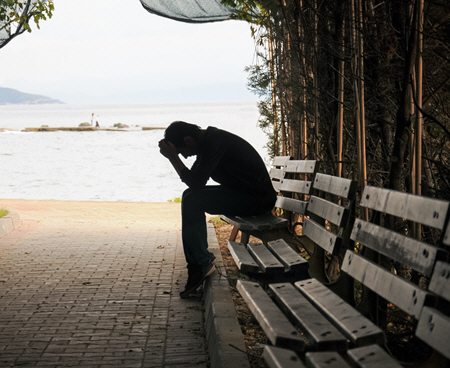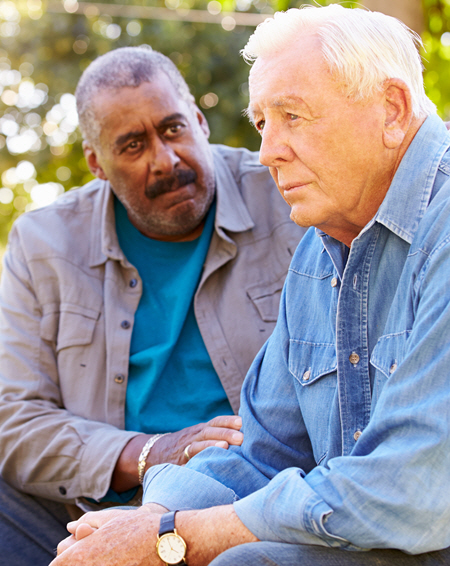 Navigating grief after a loss is hard.
Navigating grief after a loss is hard.
Following a significant loss, we are often stunned and unprepared for how to go on living. Nothing is the same anymore.
To survive, we need to grieve. The problem is that no one has taught us how to grieve.
We don’t have role models to emulate and don’t know how to negotiate this journey.
Too often, we receive messages that leave us feeling confused, abandoned, or invisible in our grief.
Allow me to share a story about Dave*…
Dave’s son died accidentally on the night before he was about to be shipped out for a second tour of duty in Iraq. Dave, a veteran himself, stuffed his feelings of sadness inside. He believed keeping busy would “cure” his grief.
Exhausted after sleepless nights, Dave would drag himself out of bed to work as a security guard. Day followed a relentless day, but everything was at a standstill.
Nothing meant anything to Dave anymore. He missed his son desperately and blamed himself for encouraging him to enter the military. He continued to replay when the military police came to his door to notify Dave of his son’s death.
Dave stopped seeing his friends and took on extra hours of work to avoid having time to think. He tried to maintain a calm demeanor on the outside, but inside he was angry and sad. He couldn’t talk about his feelings to his friends for fear of seeming “weak.”
 Dave’s demeanor went from bad to worse.
Dave’s demeanor went from bad to worse.
One day, Dave lashed out at a colleague.
It was not the first time. Dave’s outbursts were becoming all too frequent, as Dave struggled to deal with the rage and despair boiling up below the surface.
Dave developed headaches and sought relief. His doctor suggested seeing a grief counselor.
Dave’s positive transition started with counseling.
Within the safety and nonjudgmental context of therapy, Dave was gently encouraged to talk about his feelings.
He could finally find the words to express his sadness and the depth of his grief. Little by little, he found the words to tell the story of his son’s death.
He began to feel calmer and more hopeful. He could deal with problems that arose at work
 Dave’s anger subsided.
Dave’s anger subsided.
In therapy, Dave explored the reason for his anger and slowly worked through it.
He began to interact more comfortably with friends.
He learned strategies to take care of himself while healing and learned alternative ways to cope with his loss.
Dave explored his spiritual issues. Gradually, Dave could find comfort and renewed faith.
People grieve differently and at their own pace, but…
Sometimes, they get stuck. As a grief counselor, I can help by providing a framework to support your grieving process.
Using your unique strengths and honoring your goals and values, we will find the best path for you.
Accurate information and learning new coping skills help you understand your process and support your healing.
We will explore the past, resolving unfinished business, and help you maintain an ongoing bond with your loved one.
 Life is filled with so many types of losses!
Life is filled with so many types of losses!
Loss of a job or career, a divorce or relationship break-up, a move, children leaving home, and retirement all trigger a mixture of emotions we have little experience facing.
Other losses, such as infertility, miscarriage, pregnancy-related loss, or the birth of a child with special needs, often go unacknowledged but are very real.
Let’s work through your grief together!
As a certified grief counselor with 20 years of professional experience and advanced training in all areas and types of grief, I have helped hundreds of people like Dave with grieving loss.
Heartache and hope are part of life. Wholeness and healing await, so take the first step to reach out for support in living your life more fully.
Call me at (216) 7859466 today!
*Name changed to protect confidentiality.

